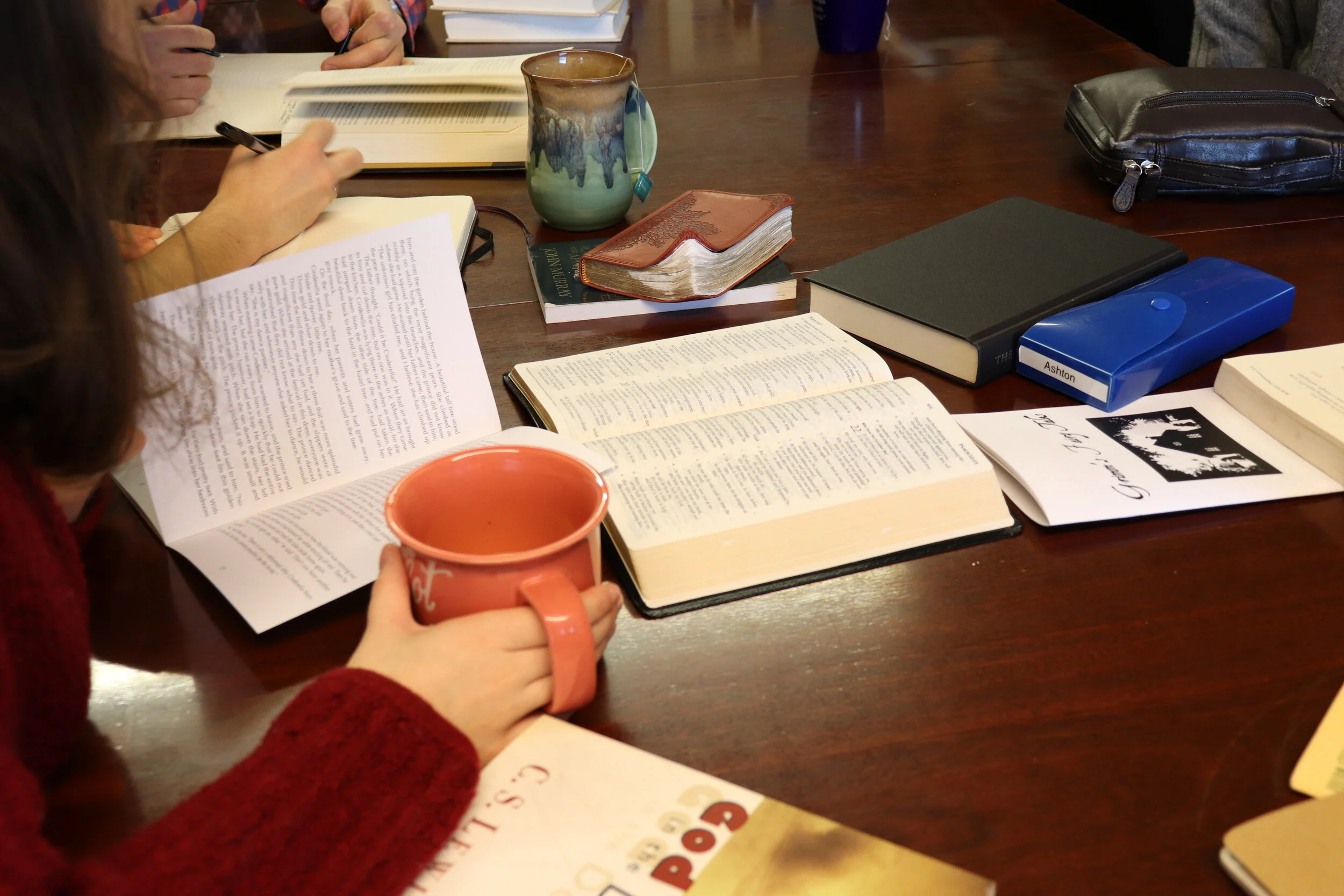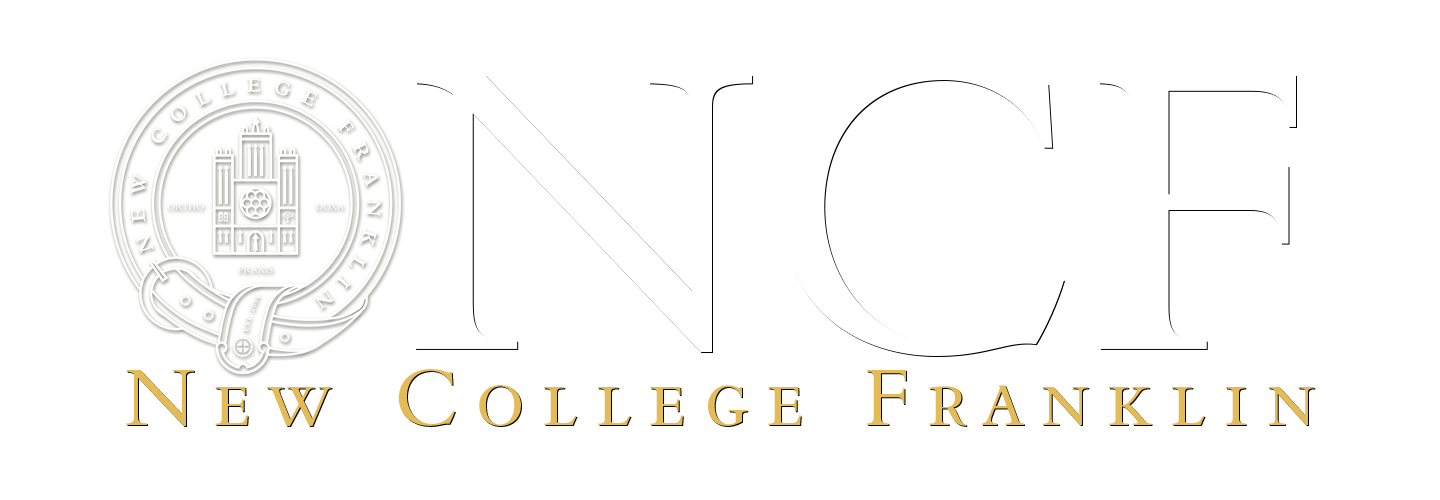Theological Studies
Theological Studies seek to shepherd students as disciples of Christ.
Through this instruction, they are encouraged and equipped to practically apply the Word of God in all areas of life with theological integrity, using Scripture as the ultimate authority. Whereas students explore religious anthropology in Moral Philosophy, in theology they study Christian theology proper.
Theology Seminar and Sacred Theology seek to provide a comprehensive understanding of divine revelation. Biblical languages are included in Theological Studies. An important part of the study of God is access to His word. A grasp of Scripture’s original languages aids in discerning with wisdom its appropriate application and import. Learning such languages also cultivates thought patterns, highlights linguistic nuances, and brings students to a deeper understanding of language, personhood and truth in general. This is especially important since the person of Christ is the Word, and we are people of the Word. Language is at the center of our thoughts, speech, writing, community and worship.

-
Theology Seminar
This 1-year course is an integrated study of Biblical and Systematic Theology from a Redemptive-Historical perspective. As such, it operates on two levels: a close reading of Scripture with an eye toward exploring how God’s covenantal redemption unfolds throughout time (as reflected in the Old and New Testaments); a broad exploration of certain theological categories by which we can better understand the teachings of Scripture: Doctrine of God, Christology, Pneumatology, Soteriology, Ecclesiology, Anthropology, and Eschatology. This is intended as an introductory course.
-
New Testament Greek
New Testament Greek is a three-semester inductive and deductive introduction to the phonology, morphology and syntax of Biblical Greek in which students will gain a foundation of Koine Greek that will lead to competent reading knowledge of the New Testament. This course will include grammatical, syntactical, and textual approaches to reading and interpreting the New Testament. Students will also learn to use a variety of textual resources with a knowledge of their correct application.
-
Ora et Labora (Pray and Work)
Students will spend a semester studying the history and practice of various spiritual disciplines that have been present in the life of the Church. They will engage in and assess practices of faith, prayer, obedience, study, and worship with direct application for life patterns. Major categories from which they will draw include lectio divina, prayer, reading, reflection, meditation, journaling, practicing the presence of God, offering up suffering, worship, thanksgiving, repentance, work, and service. This class will provide students with a pathway of disciplines from which they can draw organically during their whole life.
-
Sacred Theology
What does a prayerful, faithful life before God look like? How does an individual study and apply the Word of God? Sacred Theology is a robust engagement with Scripture and learning to read in the Christian tradition. This discussion-based course integrates the entire theology curriculum. Students will practice living before the Word of God corporately, alongside their instructors and peers, bringing the whole self before God, incorporating many of the tools which the faithful have received throughout history. This senior course will incorporate what students have learned in Theology Seminar I, New Testament Greek, and Ora et Labora. Further, students will be challenged and instructed to engage in modes of reading and interpretation which may include lectio divina, translation, the use of commentaries, historical readings, and secondary sources, as well as liturgical worship, sacrament, regular prayer and reading. Students will consider how such tools have helped the church understand God’s word and apply it in historical and personal circumstances. This course should be an encounter with the whole person with the whole Christ, interpreting so as to be interpreted by God, conformed to his Image and built up into the living body of the church. Therefore, instructors will attempt to facilitate conversation and shared responsibility with students to realize the goals of the course and the content of the classroom.
